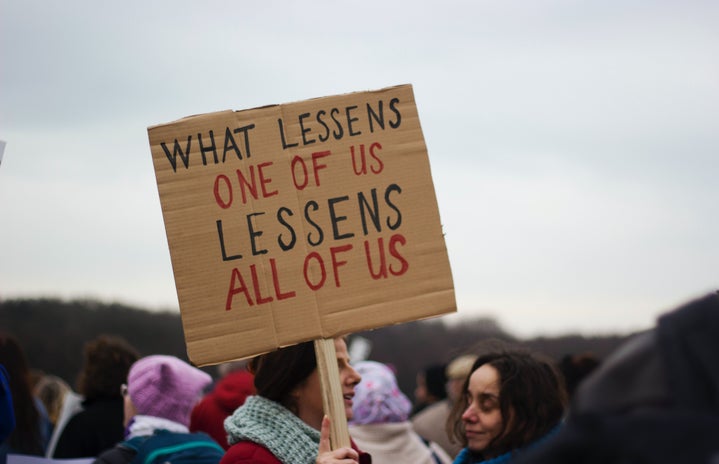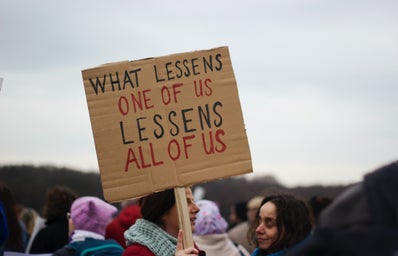The older I get, the more I realize how important it is to be patient with people and choose how you react to people’s actions and words. I learned the word “activism” in 7th grade and became unabashed with how I chose to speak to bigoted people. I lied my way through upsetting conversations just to prove a point to a person who was not changing their opinions any time soon. I was constantly angry in discussions with people raised by parents who passed down their racist beliefs to their children. My feelings were overwhelming, and I didn’t understand what else I could do.
The most empowering thing that I’ve done in conversations like this is to control my reactions. I think in general, it’s the best thing I’ve done for my own mental health. And when you are in conversations like this with people who seem unwilling to change their perspective, this is one of the best options that you could do. Trying to change someone’s perspective at the cost of your mental health is not worth it. What you can do, is lay out the information that you have and share it. If they are not willing to listen to you or give you a chance to speak, then you need to leave the conversation. However, that advice goes both ways. You do not need to agree with the other person, but you do need to listen and at least see how their structure of thinking comes out.
When I’m talking to someone with racist beliefs, I don’t use buzzwords. I don’t use words like “institutionalized racism,” “systemic racism,” etc. I will refer to them as someone with racist beliefs but will not call them racist. The minute I start using the vocabulary that I usually use with people with my shared beliefs with someone else, the conversation has already ended; there is this angry tension that is already presented before even getting into the conversation.
Talking to a racist is not for the faint of heart. Just know that when you enter a conversation with someone who has clearly different views from you, YOU need to set your own ego aside and listen. It is truly difficult and it feels so weakening to listen to someone whose views feel violent and harmful, but you have two choices in those moments: 1. You leave the conversation or 2. You create a space where you are both listening and understanding where the other person is coming from.
Yes, I did say to try to understand why the person with the racist beliefs thinks that way. Yes, the internet and social media are free and this person shouldn’t have any excuse to say or act like this. But no one is born a racist. That person, and everyone else on this planet, is the product of their own environment. The person that you are arguing with probably grew up in an environment where being racist, misogynistic, homophobic, etc. was normal. They don’t see how your structure of belief makes sense. I grew up with people with horrifyingly scary beliefs, but I’ve seen many of them grow out of it. They got older, left our hometown, and learned new ideas and beliefs. Some people need time and space to grow, even if it feels like they don’t deserve it.
Acknowledge when you don’t know a statistic that they share with you, ask questions, correct them politely but wait for them to finish their thought, be honest and patient, and hope that by some chance, they reciprocate the same energy.
I also want to say, it is not your job to teach or simplify being a good human being to anyone. How you choose to interact with people with racist beliefs is your own choice, but choosing to fight fire with fire doesn’t solve anything. I think we’ve normalized just outright treating people with harmful belief systems with hatred, rather than opening up our belief systems to them so that it doesn’t feel condescending or rude.
You don’t have to welcome people with beliefs like that into your life, but I would ask yourself: are you arguing with this person because you want to change their mind, or are you looking to be right in a never-ending argument? If someone starts targeting you with bigoted vocabulary then yes, please defend yourself in that situation. My advice and perspective are geared toward people who genuinely want to have a conversation with someone who has racist beliefs.
Growing up, I thought being rude was one of the hardest things that I could do. Maybe my frame of thinking feels naive or childish, but now that I’m 21, I feel that finding kindness for people I feel don’t deserve is the hardest thing to do. I think that at the end of the day, a little bit of patience and kindness won’t hurt anyone; if anything, we need more of it.


